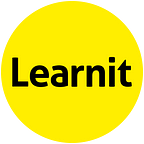Dear global education leader,
In Silicon Valley, there’s a concept called empathy mapping. The idea is to interview users of a new software or tech product to better understand the experience of using it. Empathy mappers interrogate pain points to find ways to improve the design.
Six years ago, Donnell Cannon, then the principal at North Edgecombe High, a high school located in a rural district in eastern North Carolina, tried empathy mapping with students. He shadowed students for a few days to understand what it was like to go to North Edgecombe. He observed teachers working hard in a traditional system, but because he was shadowing the students, he also saw epic failures.
“Our school wasn’t working for kids. Like, none of them. I couldn’t find one kid in school that this was working [for],” he said. Their days were defined by decisions that were “determined by adults, and that were distinct from what kids actually needed and wanted to be true.”
Cannon’s team extended their empathy mapping into the wider community. They asked parents questions such as “what do you want to be true about your children at 25?” The community decided its goal was this: “By age 25, every individual should be pursuing something they’re passionate about, aware of their agency in the world, and using their abilities to create positive change.”
Based on the information his team collected, Edgecombe designed a radically new kind of school; one with passion projects, multiple ways to practice connection to each other and to teachers, and ways to reflect daily on their own emotional state. In 2018, the district created the North Phillips School of Innovation, a microschool with 30 students in grades eight and nine. Today, North Phillips has more than 400 students in grades six to 12.
To understand some of the research and development that fueled Edgecombe, I would recommend listening to this week’s podcast with Jeff Wetzler and Jenee Henry Wood. Jeff co-founded Transcend Education to provide outsourced R&D for schools. He talks about the organization’s work with Edgecombe, but also about the 12 “Leaps” that schools need to make to fundamentally change the student experience. To better understand that, it’s got 20,000 students in 50 schools taking its Student Experiences Survey right now, asking students not about whether they like school or find it interesting, but rather: do they feel seen and known? When they struggle, do they get help? Do they feel that what they are learning is relevant to them? How do they experience the school day?
Jeff co-founded Transcend because, as a dad, he saw his sons’ schooling looking way too much like his own. He had a nagging feeling that their school — an excellent one by metrics of test scores and achievement — was not even touching the surface of figuring out his kids and helping them reach their potential (and knowing his kids had no more potential than any other kid). He’d also spent a decade at Teach for America, with much of that time trying to optimize a broken model focused on maximizing test scores, and decided he wanted to spend time designing a better model.
According to Laurie Santos, a Yale psychology professor and host of the popular Happiness Lab podcast, 40% of US college students report being too depressed to function most days and more than 80% constantly feel burned out or overwhelmed by what they have to do. Globally, symptoms of anxiety and depression have doubled during the pandemic, a recent US report noted. But for young people, mental health issues were already on the rise in the United States, with emergency room visits related to depression, anxiety and related issues up 28% between 2011 and 2015. It’s easy to blame social media, political polarization, climate change, and the pandemic. These are real. But what about how students spend their days? As part of their learning, are they building safety and belonging and exploring identity? Are they discovering ways to buffer the stress of the outside world, to form meaningful relationships and make connections? One way to find out is to ask.
Silicon Valley is hardly known for its emotional intelligence (according to one software consultant, when he “mentions ‘empathy,’ developers often ask if that’s a hot new programming language”). But the idea of listening to students and trying to understand them strikes me as smart and overdue. Critics will say kids don’t know what’s best for themselves. But listening can mean trying to gain a better understanding and then using that for better design. When Donnell listened, he realized that school was not working, but that he could change that. Listening led him to a simple but powerful change of perspective: “What do we have to lose?”
Stay curious,
Jenny
🎙 LISTEN FURTHER: JEFF WETZLER & JENEE HENRY WOOD, TRANSCEND
